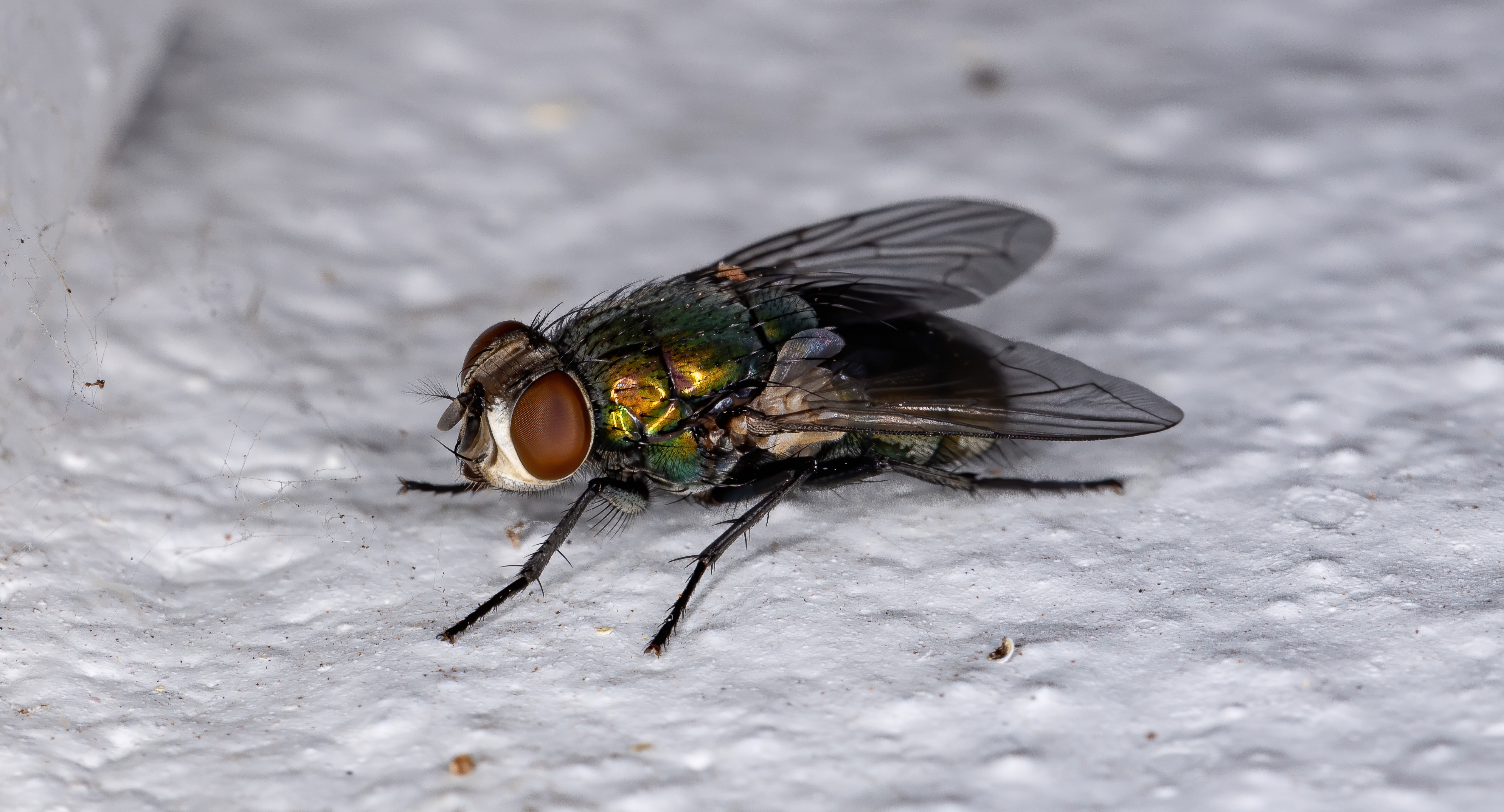Harnessing Blowflies for Sustainable Solutions
KEY INFORMATION
Waste Management & Recycling - Food & Agriculture Waste Management
TECHNOLOGY OVERVIEW
Blowflies are insects often used for scientific research in fields such as forensics, veterinary science, ecology, and biology. Scientists study them at different stages of their lives, including maggots and adult blowflies.This technology relates to a fully operational and scalable multi-species insectary (Arthropod Containment Level 2) which focuses on harnessing the potential of non-medical blowflies for agricultural and waste management sectors.
Firstly, blowfly maggots can be produced at scale to act as biodigesters to break down and convert agri-food waste or side streams to valuable blowfly insect protein. With additional processing, bioactive compounds can be extracted from these insect proteins with diverse applications in medicine and industry.
When maggots mature into blowflies, they can be deployed for all-year-round insect pollination instead of bees. This can be conducted in controlled environments, including Indoor Vertical Farms, Greenhouses, and Polytunnels. This application has been validated with state-of-the-art UV lighting technology where blowflies are adept at locating flowers and conducting crucial pollination activities.
The technology provider is actively seeking collaborative partnerships with stakeholders from the agriculture sector to enhance crop yields for farmers, while also aiming to collaborate with the waste management industry in order to minimize waste generation and transform it into valuable products through recycling.
TECHNOLOGY FEATURES & SPECIFICATIONS
- The insectary is designed with modularity and scalability, allowing for easy expansion or modification of the facility to accommodate various insect populations.
- It provides a fully contained environment that caters to all stages of the blowfly's life cycle, as well as other insects, ensuring proper housing and management.
- The insectary maintains a highly controlled environment that complies with Arthropod Containment Level 2 standards, operating as a no-odor facility with negative pressure, approved by National Environment Agency (Singapore).
- To optimize space utilization within the insectary and maintain separation between different insect populations, insects are carefully housed within netted cages stacked vertically.
- A specialized diet consisting of homogenized, strictly heterogeneous protein waste is provided to convert waste into valuable insect protein for diverse purposes.
- The insectary produces a substantial quantity of eggs necessary to sustain a closed-loop protein biodigester system, ensuring a continuous supply of insects for the biodigester.
- The insectary facilitates the emergence of newly developed blowflies, which can serve as alternative pollinators in Controlled Environment Agriculture (CEA), diversifying and enhancing pollination strategies for improved agricultural productivity.
- When complemented with a patented UV lighting technology, the insectary creates optimal environmental conditions for flower pollination, stimulating blowflies' active participation in the pollination process.
POTENTIAL APPLICATIONS
- Biodigesters: Blowfly maggots play a crucial role as biodigesters, efficiently converting waste protein into valuable insect protein. This sustainable process not only effectively manages waste but also yields a valuable protein source with diverse applications.
- Insect Pollinators: Blowflies can serve as effective insect pollinators, detecting flowers that are ready for pollination and being selectively recaptured and removed from indoor farming arenas after completing the pollination process. This innovative approach offers an alternative method of pollination, ensuring optimal crop production and enhancing agricultural sustainability.
By harnessing the potential of blowfly maggots in these areas, there is an opportunity to explore innovative and sustainable solutions for both pollination and waste management. This exploration can lead to significant improvements in agricultural practices and resource utilization, contributing to enhanced sustainability in the agricultural sector.
Market Trends & Opportunities
This technology also aims to revolutionize the aquaculture industry by eliminating disposables cost associated with waste management in a cost-effective and environmentally friendly manner.
Unique Value Proposition
-
Waste Management Capability: The blowfly system is adept at handling high-protein waste, including offal and by-products generated from animal processing facilities like aquaculture. Unlike black soldier flies, blowflies excel specifically in breaking down protein waste. Their effectiveness in degrading protein-rich by-products makes them highly valuable for waste management in industries dealing with such materials.
-
Continuous Supply and Expansion: The continuous supply of blowfly eggs ensures the expansion of current capabilities and guarantees long-term sustainability in waste management practices. This steady availability enables efficient and scalable operations.
-
Ecological Compatibility: The insectary is designed to utilize native blowfly species in any country where it is established, ensuring ecological compatibility. By using local blowfly species, the system maintains harmony with the local ecosystem, promoting biodiversity and ecological balance.
-
Versatile Applications of Insect Protein: Insect protein derived from blowflies serves as a sustainable source of fertilizers and can be further processed to extract bioactive compounds and enzymes. These valuable components meet the demands of medicinal and industrial sectors, expanding the potential uses and commercial value of insect protein beyond waste management.
-
Year-round Pollination: Introducing blowflies as alternative pollinators enables year-round pollination activities, supporting agricultural production regardless of seasonal limitations. This consistent pollination fosters continuous crop growth and yield, contributing to agricultural sustainability.
-
Enhanced Crop Quality and Value: Blowflies, as pollinators, contribute to the generation of better-quality crops, particularly fruiting crops, which command higher value in the market. This enhances the profitability of agricultural producers while meeting the growing demands for high-quality produce, resulting in improved economic outcomes for farmers.

